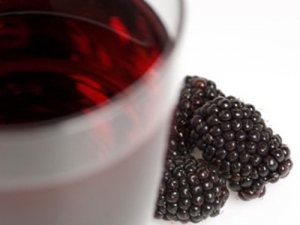NZ kiwifruit holding ground in global markets
The fight for global customers by fruit producers and marketers is on.
 NCRC and NZIPF say positioning berries as a "go to" health food starts with expanding the existing dossier of scientifically validated health claims.
NCRC and NZIPF say positioning berries as a "go to" health food starts with expanding the existing dossier of scientifically validated health claims.
Scientists in North Carolina and New Zealand want to build scientific evidence to convince consumers that berries are nature's "go to" health food.
NC Research Campus (NCRC) and the New Zealand Institute for Plant & Food (NZIPF) Research are conducting the research in collaboration with growers.
When consumers crave tasty, healthy and convenient foods, NCRC and NZIPF want consumers to think of berries.
NCRC and NZIPF say positioning berries as a "go to" health food starts with expanding the existing dossier of scientifically validated health claims.
Scientists from both research centres met at the NCRC recently to do just that.
They shared research findings that provide more evidence that the phytochemical content in berries benefits cognition, the immune system, inflammation control, human performance and exercise recovery as well as reduces the effects of health conditions like asthma and food allergies.
"This was a particularly intense scientific exchange," says Mary Ann Lila, PhD, director of the NC State Plants for Human Health Institute (PHHI) at NCRC.
"I go to a lot of berry and health-related meetings worldwide, but I was amazed at how much new, never before presented research angles and trajectories were coming out of these presentations and discussions. There was an astounding level of complementary research approaches discovered, and we realised some unique synergies that could come out of our collaborations."
TC Chadderton, Plant & Food Research's operations manager for food innovation, adds, "The goal of the workshop and our scientific collaboration is to bring leading research groups together to align our research programs and share approaches that will help the berry industry in both countries."
In the US, strawberries alone are a $2.4 billion business followed in value by blueberries, raspberries and blackberries. The berry industry in New Zealand, which includes blackcurrants, blueberries and strawberries, is valued at $100 million. The New Zealand government and food producers are taking a renewed interest in berries, which is why they sent Jarrod Robinson to represent them at the workshop.
"I represent a collective of indigenous growers and horticulturists who are working together to respond to a high-value nutrition challenge from the New Zealand government," says Robinson, who is the new product development manager for Kono, a New Zealand company that grows apples, kiwifruit, pears and hops and also produces seafood and wine.
"We want the best berries to grow on our land, and we want the science behind the crops to really understand what these berries can do as we develop the whole commercial continuum from growing to consumer products with health claims."
Scientists discussed post-harvest technologies that preserve nutrient and phytochemical content as well as improved breeding methods that maximize genetic traits, all of which contributes to value-added berry varieties for producers to grow and consumers to enjoy.
Industry applications extend to new product development. Lila, whose relationship with Plant & Food Research started in 1999, presented a technology she helped develop that fuses polyphenols with protein flour to create a functional food ingredient that can be added to products from snack bars to cookies to improve their health benefits.
The study, which PHHI and Dole Food Company are also a part of, examines the influence of berry polyphenols on physiological adaptations to high intensity exercise training.
As a second phase of the research, Hurst and Nieman are planning a metabolomics study and arranging for a second visiting scholar from New Zealand to work at the NCRC.
"Both organisations are seeking scientific innovation that leads to improved fruits and extracts and a better understanding of the health benefits of berries," Nieman said. "In the end, that benefits growers and people of all ages who want healthy and convenient food options."
But a collaborative research study and one workshop are only the first steps toward convincing consumers that berries are the "go to" health food. Plans are already underway for a follow-on 2016 workshop in New Zealand, involving NCRC scientists and a larger contingent of NZ food producers.
Farmer confidence has taken a slight dip according to the final Rabobank rural confidence survey for the year.
Former Agriculture Minister and Otaki farmer Nathan Guy has been appointed New Zealand’s Special Agricultural Trade Envoy (SATE).
Alliance Group has commissioned a new heat pump system at its Mataura processing plant in Southland.
Fonterra has slashed another 50c off its milk price forecast as global milk flows shows no sign of easing.
Meat processors are hopeful that the additional 15% tariff on lamb exports to the US will also come off.
Fears of a serious early drought in Hawke’s Bay have been allayed – for the moment at least.